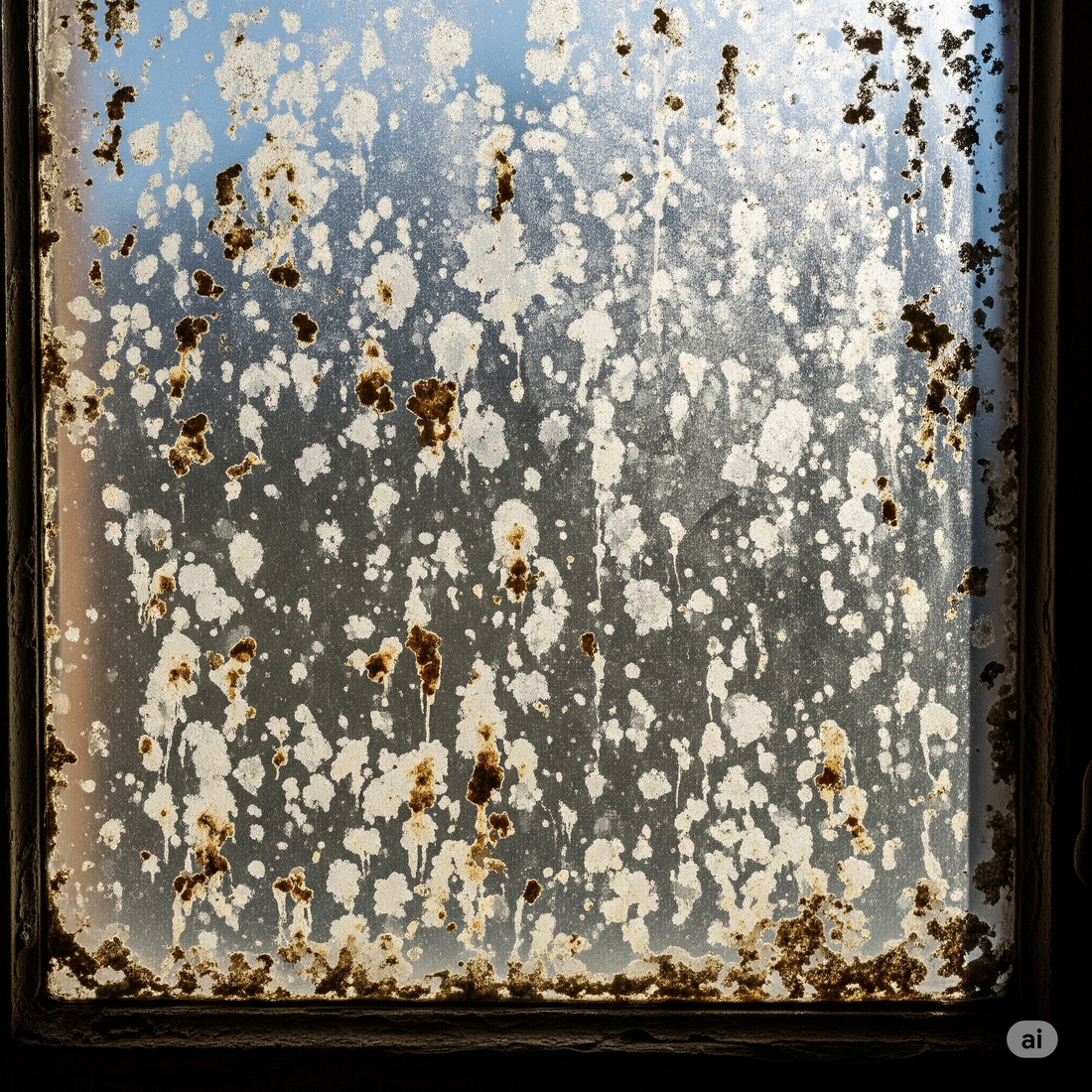
How Do I Get Hard Water Stains Off My Windows?
Share
Hard water stains can make even freshly cleaned windows look cloudy and neglected. These stubborn spots, caused by mineral buildup from water containing high levels of calcium and magnesium, often appear after rain, sprinkler spray, or improper cleaning. Unlike dust or fingerprints, hard water stains don’t wipe away easily—but with the right methods, they can be removed effectively.
In this blog, we'll explain what causes hard water stains and provide step-by-step guidance on how to remove them from your windows and prevent them from coming back.
What Causes Hard Water Stains?
Hard water stains are created when water droplets evaporate and leave behind mineral deposits. Over time, these minerals cling to the glass surface, forming a chalky or cloudy residue. Common causes include:
- Sprinklers spraying water onto windows
- Rainwater runoff from roofs or frames
- Infrequent or improper cleaning
- Using untreated well water around the home
The longer these stains sit on the glass, the more difficult they are to remove, and they may eventually etch into the surface if left untreated.
How to Remove Hard Water Stains from Windows
1. Vinegar Solution
White vinegar is one of the most effective and affordable solutions for hard water stains.
What you need:
- Equal parts white vinegar and water
- Spray bottle
- Non-abrasive sponge or microfiber cloth
Steps:
- Spray the vinegar solution generously on the affected area.
- Let it sit for 5 to 10 minutes to break down the minerals.
- Wipe with a microfiber cloth using circular motions.
- Rinse with clean water and dry with a lint-free towel.
For heavier buildup, warm the vinegar before applying it for increased effectiveness.
2. Baking Soda and Vinegar Paste
For stubborn stains, add mild abrasiveness using baking soda.
What you need:
- 3 parts baking soda
- 1 part vinegar
- Microfiber cloth
Steps:
- Mix baking soda and vinegar to form a paste.
- Apply to the stained areas with a cloth.
- Gently scrub in circular motions.
- Rinse with water and dry thoroughly.
Avoid using steel wool or rough sponges, as they can scratch the glass.
3. Lemon Juice
Lemon juice works similarly to vinegar and can dissolve mineral deposits with natural acidity.
Steps:
- Cut a lemon in half and rub it directly onto the glass.
- Let the juice sit for several minutes.
- Wipe clean with a damp cloth, then dry.
This method also leaves a fresh scent and helps cut through light grime.
4. Commercial Hard Water Stain Removers
If DIY methods don’t fully remove the stains, try a glass-safe commercial cleaner designed for hard water deposits.
Important:
- Read labels to ensure the product is safe for windows.
- Always test in a small area first.
- Follow manufacturer instructions carefully.
These are especially useful for etched or long-standing stains.
How to Prevent Future Hard Water Stains
Once you've removed hard water stains, it’s important to take steps to prevent them from returning:
- Adjust sprinklers to avoid spraying windows
- Wipe down windows after watering plants or washing cars
- Install water softeners if using well or hard municipal water
- Apply a water-repellent treatment to your windows (similar to car windshield protectants) to reduce mineral buildup
- Clean windows regularly to prevent long-term accumulation
Final Thoughts
Hard water stains may be stubborn, but with the right approach, they can be removed safely and effectively. Whether you choose vinegar, baking soda, or a commercial cleaner, consistent maintenance is key to keeping your windows crystal clear.
Need help with tough window stains?
Our professional window cleaning service tackles even the most stubborn hard water buildup using safe and effective methods. Contact us today for a free quote and enjoy sparkling windows again.
